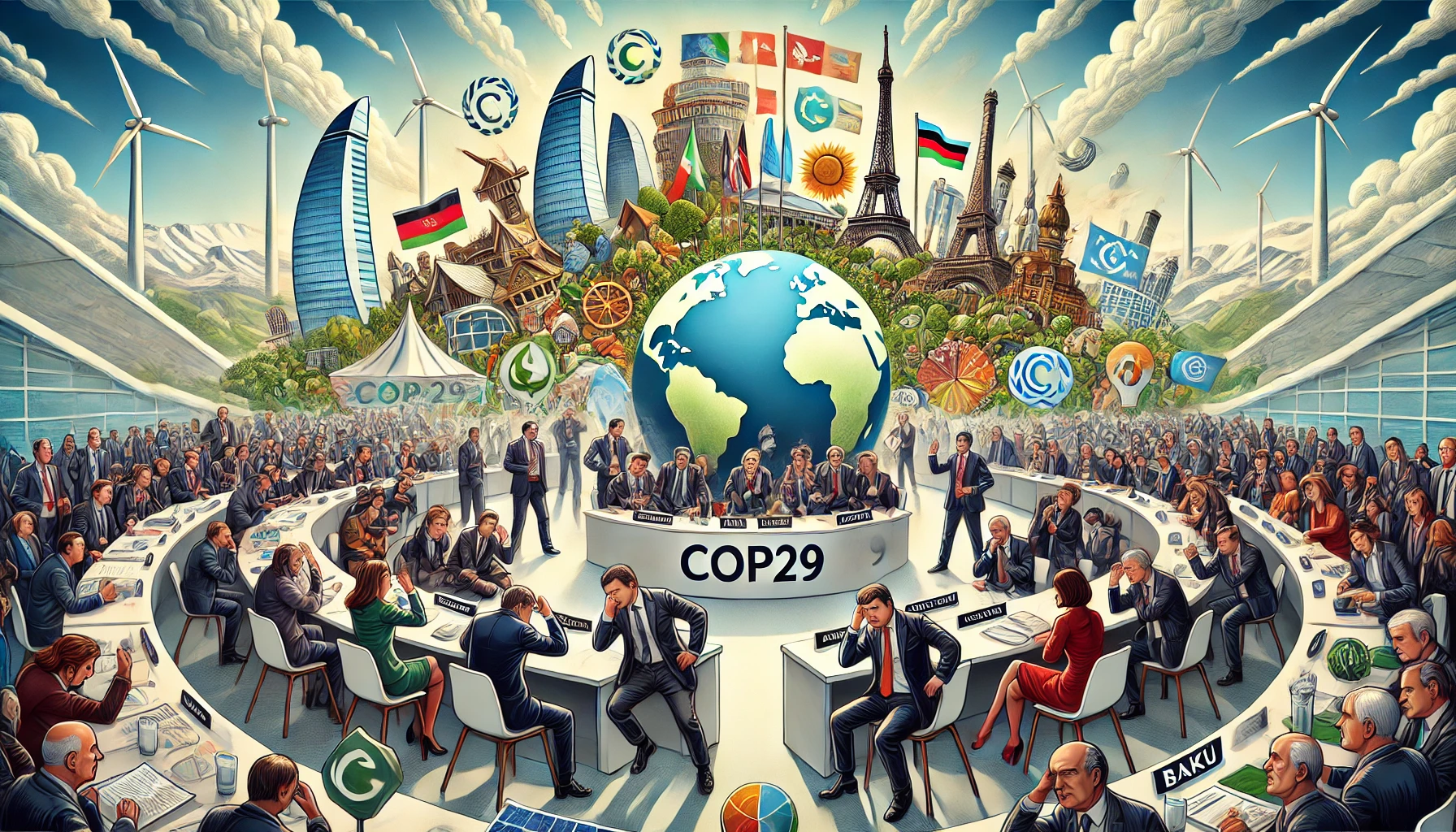The 29th United Nations Climate Change Conference (COP29), held in Baku, Azerbaijan, concluded with outcomes that have elicited both disappointment and cautious optimism globally. While the conference faced significant challenges, including geopolitical tensions and debates over climate finance, it managed to achieve milestones that contribute to the ongoing international climate action process.
Omission of Fossil Fuel Transition Language
A notable shortcoming of COP29 was the exclusion of the compromise language from COP28 in Dubai regarding the “transitioning away from fossil fuels” in the final conclusions. This omission has been a point of contention, as many stakeholders expected a stronger commitment to phasing out fossil fuels to align with the Paris Agreement’s 1.5°C target.
Advancements in Climate Finance
Despite the challenges, COP29 achieved a significant milestone in climate finance. After extended negotiations, countries agreed to a new climate finance target, known as the New Collective Quantified Goal (NCQG). Developed nations committed to increasing their contributions to $300 billion annually by 2035 to assist developing countries in mitigating and adapting to climate change. While this amount falls short of the $1.3 trillion per year that independent experts say is needed to keep global warming under 1.5°C, it represents a step forward in mobilizing resources for climate action.
Additionally, financially capable developing countries are encouraged to make voluntary contributions to the NCQG. Public contributions from development banks can also be included, broadening the base of support for climate finance. Beyond the $300 billion, all stakeholders, including the private sector, are called upon to contribute funds totaling $1.3 trillion per year from 2035. A “roadmap” to detail the implementation of this broader financial mobilization is expected by the next COP in Brazil.
Implementation of the Paris Agreement
COP29 reaffirmed the commitment to the Paris Agreement, ensuring that its implementation continues without interruption. Despite some resistance, existing climate action targets were not weakened. However, there is an urgent need to intensify and accelerate efforts in the coming years to keep the 1.5°C target within reach.
Establishment of Global Carbon Market Rules
A significant development at COP29 was the finalization of rules governing global carbon markets under Article 6 of the Paris Agreement. This agreement establishes a legal framework for trading emission reductions between countries, aiming to ensure environmental integrity and prevent issues such as double counting or fraud. The implementation of these rules is expected to unlock billions of dollars in climate finance, primarily directed toward developing countries.
Focus on National Climate Action Plans
Looking ahead, the spotlight shifts to the new Nationally Determined Contributions (NDCs) that all signatory states are required to submit by COP30 in Brazil. These national climate action targets and plans must align with the outcomes of the Global Stocktake at COP28, emphasizing the need to transition away from fossil fuels, expand renewable energy capacity, and enhance energy efficiency globally by 2030.
Notably, Brazil has already submitted its NDC, aiming to reduce emissions by 59% to 67% by 2035 compared to 2005 levels. The United Kingdom has announced an 81% reduction in greenhouse gases by 2035 compared to 1990 levels. These commitments underscore the importance of aligning national targets with the Paris Agreement’s goals.
Challenges and the Path Forward
The geopolitical landscape presents challenges to international climate action. Signals from the incoming U.S. administration under President Donald Trump suggest potential policy shifts, including a possible withdrawal from the Paris Agreement. In this context, the European Union, together with China, may need to assume a leadership role to encourage constructive cooperation among G20 states.
Despite these challenges, COP29 managed to reaffirm the Paris goals and take incremental steps toward achieving them. The upcoming COP30 in Brazil will focus on the new national climate action plans and the role of nature in climate action. It is imperative that all parties undertake ambitious and transformative actions to maintain the momentum toward a global 1.5°C pathway.







